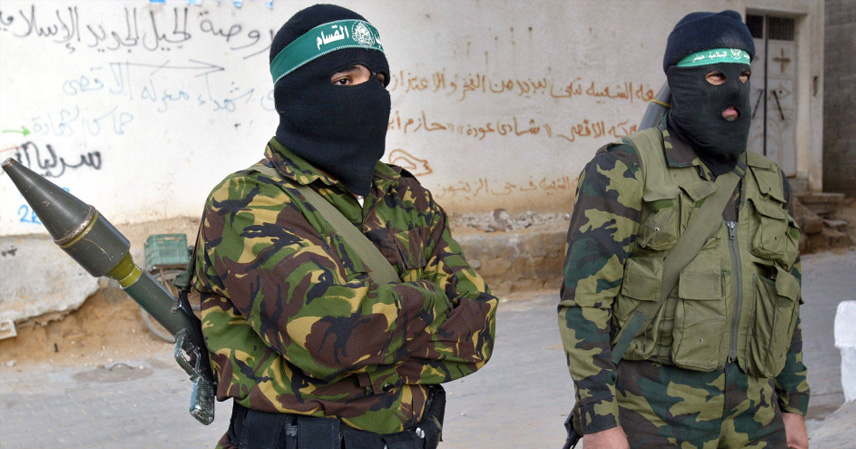After more than two years of brutal conflict, the unthinkable happened: Hamas signed, Israel nodded, and former U.S. President Donald Trump triumphantly declared, “The war is over.”
The media rushed to celebrate a “new dawn of peace.” But if you really believe this is the end, you’re being naïve. Every side is calling it a victory—but in reality, each has simply found a way to cut their losses. And as for Italy, somehow being the first to get publicly scolded? That twist says more about geopolitics than justice.
What looks like a peace agreement is, in truth, a set of stopgap maneuvers. No one here is surrendering; they’re all just out of options.

Signatures as Survival, Not Sincerity
Let’s start with Hamas. Signing this deal wasn’t a choice—it was survival instinct. After years of military pressure, shrinking territory, shattered supply routes, and dwindling foreign aid, Hamas didn’t stop fighting because it wanted peace. It stopped because it couldn’t keep fighting.
By accepting the deal, Hamas isn’t conceding defeat—it’s buying time. The language of “international guarantees” and “sovereign respect” is political theater, a way to step back without disappearing. Their goal isn’t peace; it’s preservation.
Israel’s position is more complex. Its partial withdrawal might look like a concession, but in reality, it’s a strategic retreat dressed up as diplomacy. After years of bombardment, domestic protests, and unresolved hostage crises, the Netanyahu government was cornered. Militarily, it gained ground—but politically, it was bleeding support at home and abroad.

Trump’s “peace plan” came just in time to offer Israel an exit with dignity: declare victory, pull back troops, and let Washington claim the diplomatic glory.
And make no mistake—Trump’s timing isn’t altruistic. With U.S. elections around the corner, a “Middle East peace breakthrough” makes for perfect campaign optics. This is less about peace and more about polling numbers.
The Guns May Fall Silent, But the Distrust Still Burns
A ceasefire on paper doesn’t erase the hatred in the streets. None of the fundamental issues—Jerusalem’s status, Palestinian statehood, borders—have been resolved. The deal covers logistics, not legitimacy.
That’s a dangerous foundation. The moment any clause is broken—a supply delay, a border skirmish—the whole fragile framework could collapse.

Trust is nonexistent. After two years of bloodshed, neither side believes the other’s word. Hamas wants space to rebuild; Israel fears it will use that space to rearm. This is not peace. It’s a timeout between rounds.
Meanwhile, the International Criminal Court is still investigating alleged war crimes—attacks on civilians, blockades on humanitarian aid, and more. Those cases won’t vanish because of a ceasefire. If anything, the post-war calm may give prosecutors time to dig deeper.
This “peace” is little more than a stitched wound. The infection underneath still festers.
Italy Becomes the Convenient Scapegoat
Then came the surprise: on the eve of the agreement, the ICC publicly named Italy for allegedly supplying arms to Israel—accusing Rome of “indirect participation” in the war.
Strange, isn’t it? Many Western states funneled military aid, but only Italy got singled out. The reason lies in timing, not justice.

As more European nations voice support for Palestinian statehood, Italy has been slow and hesitant, appearing “pro-Israel” in the eyes of some. Combine that with traceable arms exports, and it became an easy political target.
The ICC’s move sends a message: neutrality is no longer optional. Even indirect support now carries potential legal risk.
This marks a new phase of warfare—where the real battles begin after the shooting stops, in courtrooms and diplomatic chambers. Italy’s naming is a warning shot to others: the war may be over, but accountability is just beginning.
A War That Ends, and a Game That Begins
For now, the Gaza war is over—at least in military terms. But the underlying conflict remains untouched. Trump’s 20-point agreement may cool tempers temporarily, but it guarantees nothing beyond a pause.

Hamas will regroup; Israel will remain on edge; and the so-called neutral states will face mounting political consequences for every past shipment and statement.
This conflict was never just about rockets and borders—it’s about global leverage, optics, and the power to define legitimacy. The battlefield is shifting from the front lines to the legal and diplomatic arenas.
So, no, this isn’t an ending. It’s merely the beginning of a longer, quieter, and far more complicated war—one fought not with bombs, but with influence, law, and memory.



